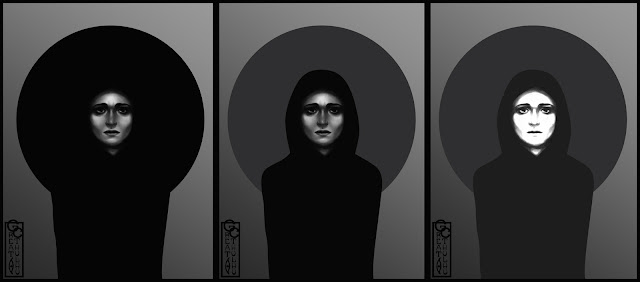Yannick Alléno: 'We Have to Think About Time Again'
YANNICK ALLÉNO: 'WE HAVE TO THINK ABOUT TIME AGAIN'
A chat with the leading French chef about his insatiable passion for Modern French cuisine, on what he's achieved and what's yet to come.
Chef Yannick Alléno is one of the most influential French chefs in the world. With two Michelin three-starred restaurants and a portfolio of over a dozen restaurants around the world, the Parisian remains a tireless ambassador for the renaissance of Modern French cuisine.
An insatiable appetite to understand the heart of French gastronomy has seen the Bocuse protege dedicate several years to research and experimentation in establishing the pillars of French gastronomy - from the mixing and extracting of sauces to fermentation, captured in his books, Sauces and Terroir.
When not working in his kitchens in Morocco, Dubai or beyond, the French superstar continues to push culinary boundaries in palatial flagship Paris restaurant, Pavillion Ledoyen.
Today, the "king of sauces" curiosity is firmly focused on the dynamic of the menu and the emphasis given to the main meal. Determined to give a voice back to the main course he has created a menu that pivots on the main dish, whether meat or fish, with a carefully researched sequence of dishes that take the palate on a journey, preparing for both its arrival and departure.
We found out more about the godfather of JRE and what keeps him in the kitchen and why, during a chat at Identita Golose 2018, fresh from Bottura's public announcement that the duo would be involved in the Food for Soul opening in Paris.
How do you tell the story of French cuisine around the world?
We use the same development as Escoffier had in the past– he won the world with sauces. When he went to Russia there was nothing - he brought butter with him, he found salmon and he did a fantastic caviar butter. Russia didn't have that kind of cuisine then. So today, we are doing that, keeping the sauces alive. Of course, you have the products around you, but the base is always that.
What legacy does Paul Bocuse leave with you?
He leaves the French legacy and responsibility with us. We have to be sure that the French philosophy is kept alive. But we have an imagine to change and make sure that the modernity of French cuisine is really there.
You’re an inspiration to younger chefs. What do you think of the next generation?
They are so mature, more than we were, it’s great to see how they have evolved. Communication is better and they travel a lot now and obtain a lot of information. They don’t mind taking 6 months out their countries to work for Massimo Bottura or to go to Rene Redzepi then back to Paris. In the past, we looked at CV’s and were like “oh my god you didn’t stay for 2 years, you’re not stable we don’t want you.” Today it’s not like that, life isn’t like that, I think we have to take it in a positive way, it’s very important. Things change, and we have to adapt.
How has the evolution of "fast and casual" affected customer's perception of contemporary dining?
Everything is crazy quick, but I think, like with a wedding, you have to prepare it. In cuisine, we forgot about time.
When you say you know what I’ll put the mushroom in the oven on Monday and you’’ll have it on Friday. You ask the customer “do you want me to prepare it?” the customer says, "I’m not sure – I’ll tell you later." Everything’s too quick. We have to think about time again.
What’s exciting you right now about the world of contemporary cuisine?
Diversity. People share more information now. When you see something interesting in the kitchen, and you ask the chef, he will immediately give you the recipe, it's the sharing. At one time, it was “it’s my producer, my recipe no, no, no .” Now if you ask a chef they will share a recipe.
What’s concerning you about the world of gastronomy?
We all have to have a green attitude. That’s why I have a special jacket with a green button, and it’s not just for me, it symbolises an ideology of "thinking green". There are huge things to do and we have to enrich our knowledge about that kind of impact. Chefs have the power of media. You know, we can change things.
Two three Michelin starred restaurants, an empire of restaurants globally, listed in top 100 chefs. What is/are your biggest triumphs as a chef and what's left to achieve?
I think that an achievement is when you’ve finished. I don’t want to talk about any achievements yet, but something that I am very proud of is the chefs that I trained that have become fantastic chefs. I’ve had around 30 Michelin starred chefs that have worked with me, and now they are their own chefs and high performers. Chefs did it for me and now I think it’s my turn to do the same for them.
Any future projects you’d like to tell us about?
I will open an Enoteca in Paris, called Allénoteqùe. It will be a bistro with a fantastic wine cellar in the basement and an art gallery on the first floor which will open by the end of May. It will be a small restaurant with very good chefs.
http://bit.ly/2DIC9g6


Comments
Post a Comment